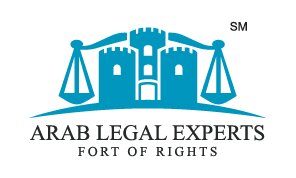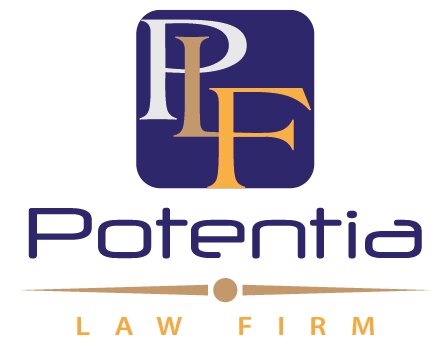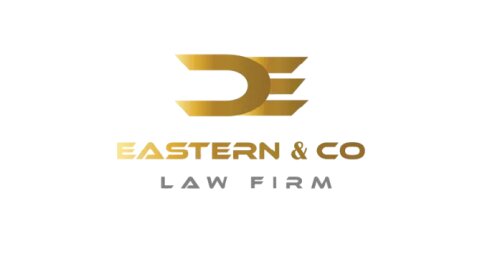Best Admiralty & Maritime Lawyers in Dokki
Share your needs with us, get contacted by law firms.
Free. Takes 2 min.
List of the best lawyers in Dokki, Egypt
1. About Admiralty & Maritime Law in Dokki, Egypt
Admiralty and maritime law in Dokki, Egypt covers disputes and regulatory matters related to shipping, vessels, cargo, salvage, collision liability, and port operations. It draws on national statutes such as the Egyptian Civil Code and Merchant Shipping framework, as well as international instruments to which Egypt subscribes. In Dokki, most maritime matters are handled by Egyptian courts and specialized regulatory authorities within Cairo and Greater Cairo. Practical enforcement relies on contracts, insurance, and procedures in civil courts rather than a separate maritime court system.
For residents of Dokki, this means maritime claims or disputes typically rely on standard civil litigation processes, but with specialized knowledge of how maritime liens, charter parties, and cargo claims operate under national law. Engaging a lawyer with maritime experience helps translate international shipping practice into Egyptian legal remedies, and assists with evidence collection, jurisdiction questions, and cross-border considerations. A qualified maritime attorney can also guide you through documentary letters of credit, insurance claims, and cargo recovery in a way that aligns with Egyptian procedural norms.
2. Why You May Need a Lawyer
These scenarios reflect concrete, Dokki-specific contexts where you may require Admiralty & Maritime legal help.
- A Dokki-based importer faces cargo damage on a shipment arriving at Port Said and needs to navigate the carrier's liability and an insurance claim under Egyptian law.
- A vessel owned by a company in Dokki is detained by a port authority for suspected non-payment of port dues and the owner seeks release and a defense against a detention claim.
- A local freight forwarder disputes a charter party breach after a delay in delivery, raising questions about liability, demurrage, and performance guarantees under Egyptian contract law.
- A collision or grounding near the Suez Canal region leads to cross-border liability issues, salvage rights, and potential third-party claims that must be resolved in Egyptian courts.
- A ship mortgage or maritime lien is being enforced against a vessel in a Dokki-based business, requiring precise filing, priority analysis, and potential foreclosure procedures under the Merchant Shipping framework.
- Seafarer employment or compensation disputes involving crews on ships linked to companies in Dokki require understanding international conventions and Egyptian compensations standards.
3. Local Laws Overview
Egypt governs admiralty and maritime matters through a combination of civil law and shipping-specific statutes. Below are 2-3 key legal frameworks commonly cited in Dokki and the wider Egyptian maritime context.
Egyptian Civil Code, Law No. 131 of 1948 - Governs contracts including maritime contracts such as charter parties and carriage of goods by sea, as well as general obligations arising from maritime transactions. The Civil Code provides the baseline for liability, damages, and contractual remedies in maritime disputes.
Egyptian Merchant Shipping Law, No. 8 of 1990 (as amended) - Regulates shipping operations, ship ownership and registration, maritime liens, salvage, and ship mortgages. Amendments over time have aligned domestic rules with international safety and navigational standards to some extent, with updates intended to improve enforcement and liability clarity for shipowners and cargo interests.
Port Administration and Regulation under the General Authority for Ports (GAP) framework - Governs port operations, pilotage, berthing, port dues, and clearance procedures. This framework shapes how maritime activities interface with Egyptian ports and affects the timing and cost of cargo handling, detention, and disputes arising in port facilities.
Recent trends related to these laws include alignment with international safety norms such as SOLAS and MARPOL principles, and enhanced procedures for enforcing maritime liens and ship mortgages. For authoritative context, see industry and legal analyses from international bodies cited below.
"Egypt’s maritime sector relies on a blend of national codes and international conventions to address shipping, liens, and port operations." - International Maritime Organization (IMO) and UNCTAD sources
Key sources for further reading and verification include official international materials and legal overviews. For global background on maritime regulation and safety standards, see the International Maritime Organization and UNCTAD resources linked below.
Authoritative context references:
- International Maritime Organization - Multilateral framework for ship safety, SOLAS, MARPOL, and ship operation standards.
- UNCTAD - Maritime Transport - Analysis of global shipping, trade flows, and policy trends relevant to Egypt.
- Library of Congress - Egypt Law Overview - Publicly accessible legal resources and country profiles for reference to civil and commercial law concepts.
4. Frequently Asked Questions
Below are common questions residents of Dokki ask about Admiralty & Maritime law in Egypt. Each entry starts with a question and is followed by a concise answer.
What is Admiralty law and how does it apply in Dokki?
Admiralty law governs maritime activities, including shipping contracts and vessel disputes. In Dokki, claims typically proceed through Egyptian civil courts with maritime-specific considerations in contracts and liens.
What is a maritime lien and why does it matter in Egypt?
A maritime lien attaches to a vessel for claims arising from maritime activities. It can affect the vessel's sale, mortgage priority, and detention in port, making timely legal advice essential.
Do I need an Egyptian lawyer or a foreign attorney for maritime disputes?
In Dokki, you generally need an Egyptian lawyer (advocate) who understands local civil procedure and maritime statutes. Foreign lawyers can assist in cross-border matters but must collaborate with an Egyptian advocate.
How do I start a cargo claim against a carrier in Egypt?
Begin with gathering the bill of lading, insurance documents, and shipment invoices. An Egyptian advocate can assess liability under the Civil Code and Merchant Shipping Law and file the claim in the appropriate court.
What kinds of documents are essential for a maritime insurance claim?
Collect the insurance policy, surveyor reports, cargo receipts, and proof of loss. Your attorney can help interpret policy terms under Egyptian law.
How long do maritime disputes typically take in Egypt?
Timeline varies by case complexity and court workload. Straightforward cargo claims may resolve in months, while complex salvage or lien matters can extend to a year or more.
Do I need to involve the port authority in a detention or demurrage issue?
Detentions and demurrage often involve port regulations. An attorney can advise on filing notices, release procedures, and potential compensation.
What is the difference between a charter party dispute and a cargo claim?
A charter party dispute centers on the contract between shipowner and charterer. A cargo claim concerns loss or damage to goods. Both require evidence of contract terms and breach events.
Can I sue for damages if my goods were damaged during transport?
Yes, damages may be recoverable under the carriage contract and applicable Egyptian law. Your lawyer will assess liability, quantum, and documentation needs.
What if a vessel is damaged during loading or unloading at a Dokki-area facility?
Liability depends on fault and documented procedures at the terminal. An advocate can advise on who bears responsibility and how to pursue recovery.
Is arbitration available for maritime disputes in Egypt?
Arbitration is an option for many commercial maritime disputes. Your lawyer can help draft arbitration clauses or pursue arbitration if it aligns with your contract terms.
Should I file a maritime claim in Cairo or Alexandria?
Most Egyptian maritime disputes are handled in Cairo-based civil courts, with some matters tied to port locations or ship registrations. Your attorney will determine the proper venue.
5. Additional Resources
Use these official and authoritative resources for deeper understanding and official references.
- International Maritime Organization (IMO) - Official site with standards, conventions, and guidance on ship safety and pollution prevention. imo.org
- UNCTAD - Maritime Transport: Global data on shipping and policy implications. unctad.org
- Library of Congress - Egypt Country Profile and legal system overview (civil and commercial law foundations). loc.gov
6. Next Steps
- Clarify your maritime issue and collect all relevant documents (contracts, bills of lading, insurance, port notices) within 1 week.
- Identify potential Egyptian advocates with maritime experience in Dokki or Greater Cairo, and request an initial consultation within 2 weeks.
- Prepare a concise brief summarizing facts, contract terms, and desired outcomes for the consultation.
- Ask the lawyer to outline the applicable laws (Civil Code, Merchant Shipping Law) and any jurisdiction-specific steps within 1 business day after the meeting.
- Obtain a written engagement letter and fee structure, including court costs, within 1 week of choosing a lawyer.
- Begin document audit and evidence gathering under the lawyer’s guidance, with a target to file initial pleadings within 3-6 weeks if pursuing a claim.
- Review and plan for alternative dispute resolution options (mediation or arbitration) if appropriate for your case, typically within 1-2 weeks after initial assessment.
Lawzana helps you find the best lawyers and law firms in Dokki through a curated and pre-screened list of qualified legal professionals. Our platform offers rankings and detailed profiles of attorneys and law firms, allowing you to compare based on practice areas, including Admiralty & Maritime, experience, and client feedback.
Each profile includes a description of the firm's areas of practice, client reviews, team members and partners, year of establishment, spoken languages, office locations, contact information, social media presence, and any published articles or resources. Most firms on our platform speak English and are experienced in both local and international legal matters.
Get a quote from top-rated law firms in Dokki, Egypt — quickly, securely, and without unnecessary hassle.
Disclaimer:
The information provided on this page is for general informational purposes only and does not constitute legal advice. While we strive to ensure the accuracy and relevance of the content, legal information may change over time, and interpretations of the law can vary. You should always consult with a qualified legal professional for advice specific to your situation.
We disclaim all liability for actions taken or not taken based on the content of this page. If you believe any information is incorrect or outdated, please contact us, and we will review and update it where appropriate.











